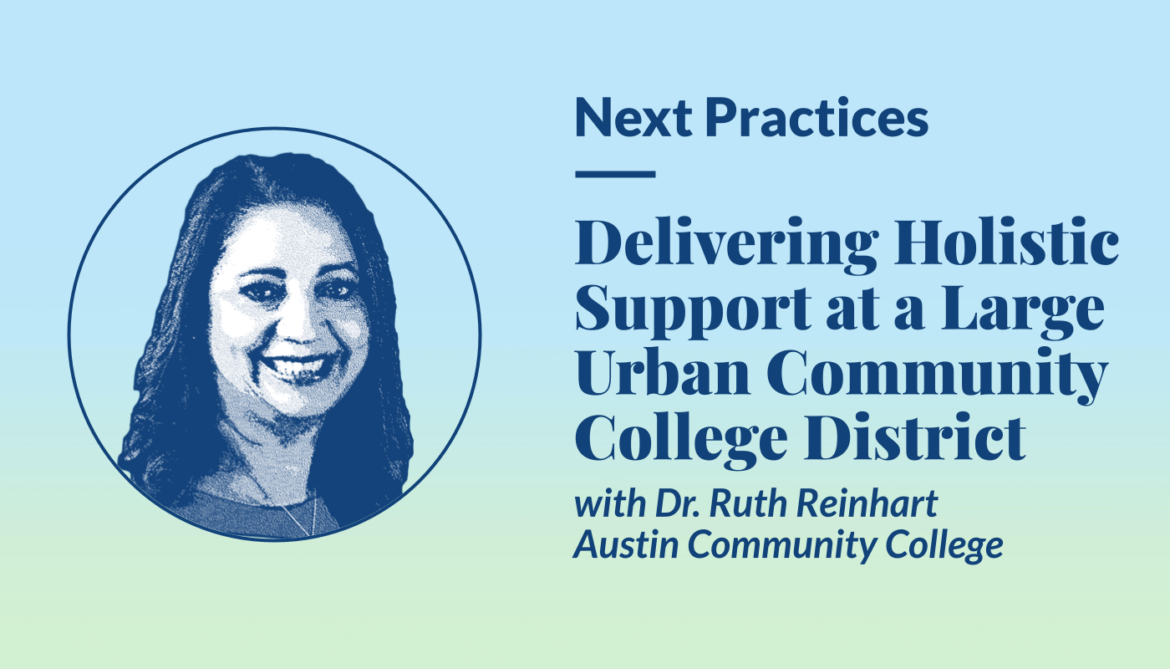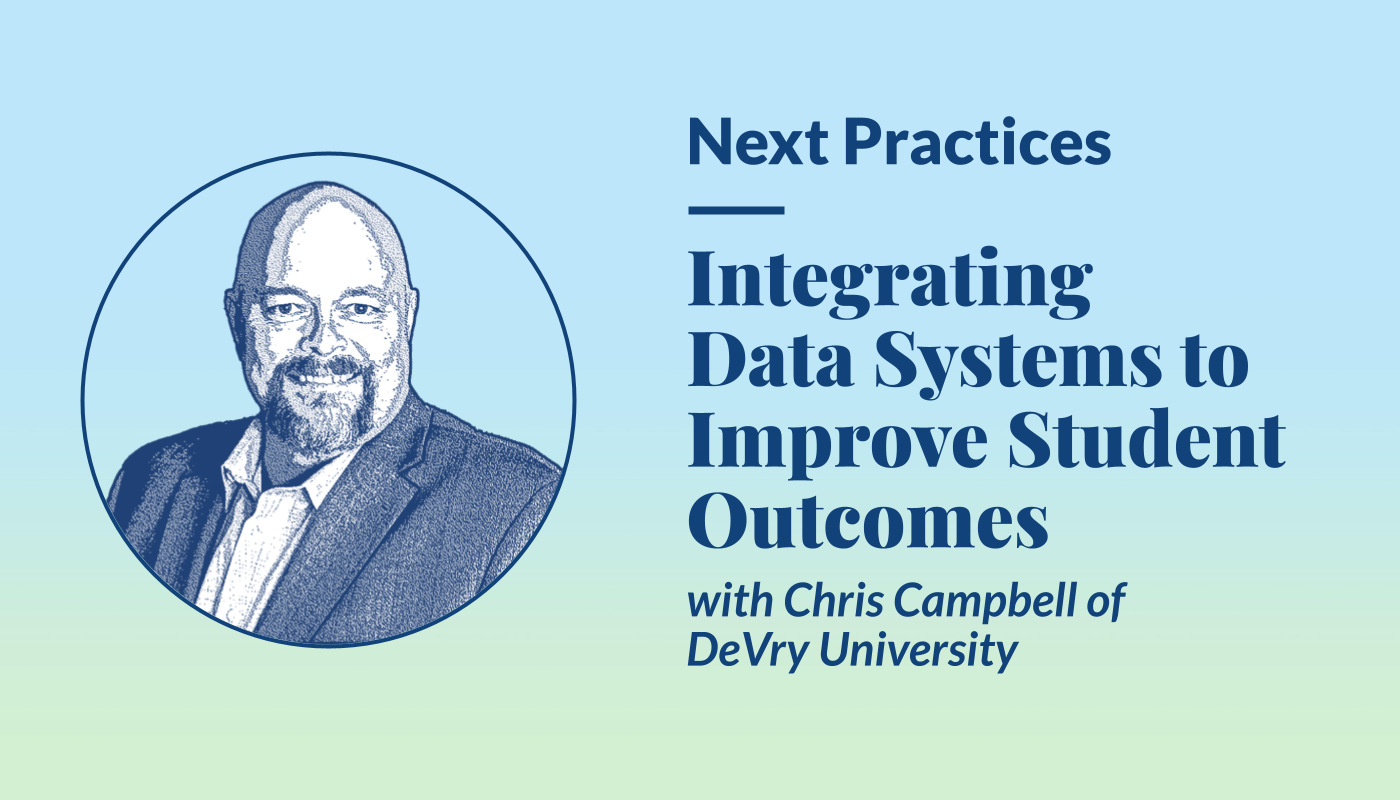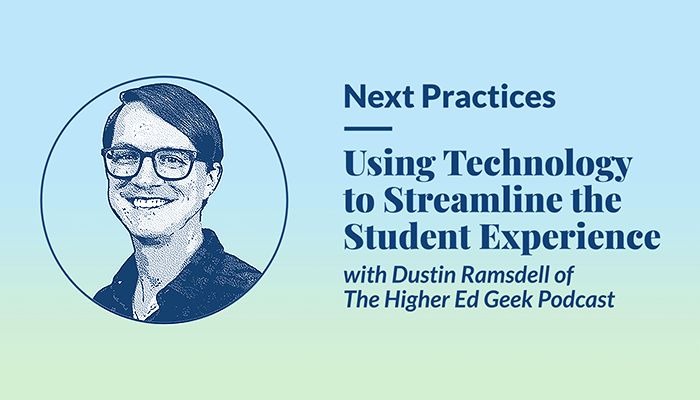
Delivering Holistic Support at a Large Urban Community College District with Dr. Ruth Reinhart
Share this Post
Subscribe: Spotify | Apple Podcasts | Youtube Music | Full Transcript
Community colleges are seeing increased enrollment as more students pursue short-term degrees and vocational programs. Austin Community College (ACC) is one of many institutions committed to student success amidst this enrollment uptick, especially among first-generation and underrepresented students. In a conversation with Dr. Ruth Reinhart, Associate Vice Chancellor of Student Support Services at ACC, we learn how the college is transforming its student success initiatives through strategic scheduling, engagement tracking, proactive advising, and instructional collaboration.
Student-Centered advising appointments
Like many community colleges, ACC has a growing number of nontraditional students who face practical obstacles in scheduling traditional in-person, weekday advising sessions. In an effort to support those with full-time jobs, children, and other responsibilities, ACC is expanding its academic advising to include evenings, weekends, and virtual appointments. This allows advisors to reach students in the time and manner that works best for them, resulting in a 75% participation rate.
Monitoring Student Persistence and Engagement
ACC’s data confirms that students who engage with their advisors are more likely to persist and graduate. With this in mind, ACC utilizes its Civitas Learning Student Impact Platform’s actionable analytics and key student success metrics to identify those who could benefit from proactive engagement. With this holistic view of student data, advisors can see which students they haven’t seen, who withdrew from classes, and other signs, like shifts in persistence likelihood or LMS activity compared to their peers, that prompt advisors to reach out.
Data-Activated Proactive Advising
One of ACC’s biggest and most impactful student success developments has been the rollout of academic alerts. With these alerts, faculty can notify advisors about missed classes, performance concerns, and other relevant details that affect a student’s performance. Paired with persistence predictions in their Civitas Learning Student Impact Platform, advisors have the context they need to proactively reach out to students who need extra guidance.
Since integrating these systems into its advising model, ACC has seen incremental retention improvements and a massive decrease in crowded waiting rooms, long lines, and rushed appointments. By being proactive with their students (especially those who are not self-advocating), and providing holistic support, advisors are better equipped to manage their caseload, and students receive more personalized care.
ACC’s proactive advising doesn’t just apply to the academic year–it starts well before students begin their courses. Whether it’s helping students arrange childcare or address food insecurity, advisors aim to remove as many barriers to a successful college experience as possible before the year begins.
Instructor Collaboration
Dr. Reinhart affirms the importance of collaborating with instructional colleagues when implementing student success technology. In the case of ACC’s academic alerts, working with faculty enabled their teams to determine which alert features instructors needed most and how those features could best serve their students. The result was a helpful student success resource that both faculty and staff effectively use.
Student Success for A New Generation
Fostering a culture of student success internally and across campus takes time, and that’s exactly what ACC is committed to doing in years to come. With a free tuition program beginning in the fall of 2024, the school’s student success initiatives will become even more prominent as they welcome a larger and more diverse student population. Like many other community colleges shifting to a free tuition model, ACC is attempting to empower all students, improve open access to education, and help change the trajectory of the lives of underserved students.
Listen to the full conversation on Next Practices to learn more about what ACC is doing to advance student success, particularly in the early stages of its free tuition program.



